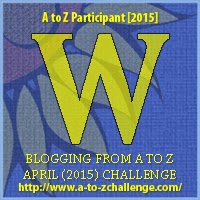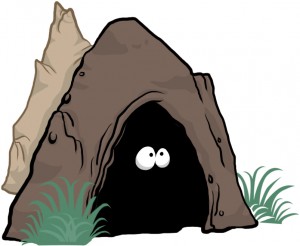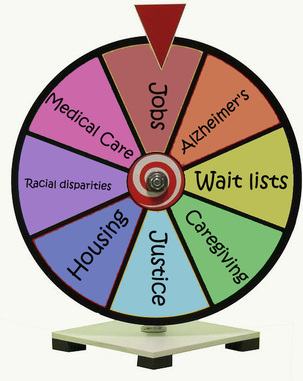By: Stephanie Holland
 Those of us with adult children know that we, as a society, have come a long way in terms of advocacy and services for people with intellectual and developmental disabilities (ID/DD); but we also know that we still have a long way to go before our children are fully accepted and understood.
Those of us with adult children know that we, as a society, have come a long way in terms of advocacy and services for people with intellectual and developmental disabilities (ID/DD); but we also know that we still have a long way to go before our children are fully accepted and understood.Today we’ll look at what kinds of projects are on the table right now, and where we might want to go next.Our community has been celebrating a victory lately: the battle to get the federal ABLE bill passed took almost a decade. Parents and advocates from the Ds community fought in the trenches with people from many other disability groups. That kind of teamwork and dedication is necessary to accomplish the big tasks. The National Down Syndrome Society was among the leaders of that charge, and they have a well thought out plan for what comes next. During the 321 eConference, Ginny Sessions Siller, and Heather Sachs talked about the NDSS agenda for 2015. The NDSS National Policy Center is heavily involved in passing and tracking the progress of ABLE bills at the state level. Both the NDSS and the NDSC have a system where you can sign up for alerts when support is needed from the community.
It’s Too Much!
When I hear stories about families having a difficult IEP meeting, or struggling to get services I wonder if all the work we did in the early days of mainstreaming was for naught. When I hear comedians make fun of people who have Down syndrome, I wonder what it will take to get through to society that our children are not here to be a source of amusement. And, when I think about how Ethan died on the floor of that theater, calling for his mother, I worry about my own son and how many more people with ID/DD will be abused or killed because they are misunderstood and devalued.But we can either become jaded and hide our heads, or we can acknowledge the fact that change comes at an incredibly slow pace and keep pluggin’ along.
First Things First
So where do we start? None of us can do it all, especially not alone. One way would be to make a list (we love lists!) and prioritize your family’s needs. Then do some research. Start with your local Down syndrome group and your local Arc. Find out what’s being done in your area so you can avoid duplicating efforts. If you don’t find anyone who is working on what you feel is important it may be time to branch out.
This month we’ve given you some information about what’s going on that we’re aware of:
- NDSS – federal and state legislation
- NDSAN – adoption
- 321 eLearning – community education
- NDSC – national conference
- IMDSA – awareness
- Ruby’s Rainbow – post secondary ed
- GDSF – research
- IDSC – connections
- NCCJD – justice
- Special Olympics – health
- Arc, DSAIA , and D.A.D.S. – local issues
These are just the tip of the iceberg. Many of the issues we’ve identified as being important to us may not appear, specifically, on this list but they could be connected; i.e. community education can be used to network and identify a plan of action, some of our issues require research and/or legislation, and the better we connect with each other and share the work, the more we can get done.We invite everyone to join with us as we try to give a larger, organized voice to some of these issues.There’s a phrase we’ve borrowed from a friend that sums up how we have to look at the “work” of advocacyForward with Hope!


